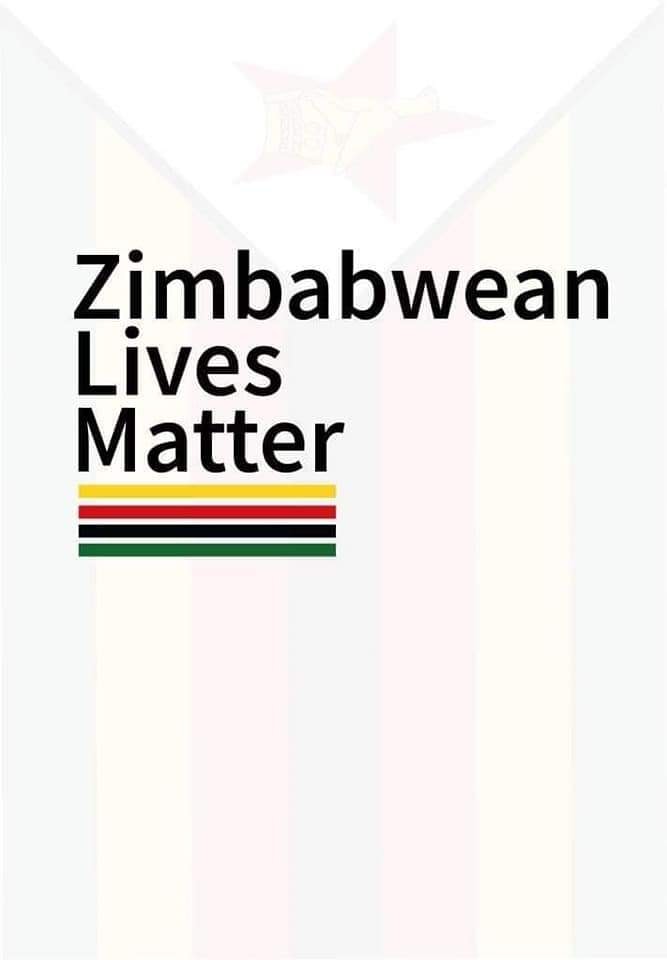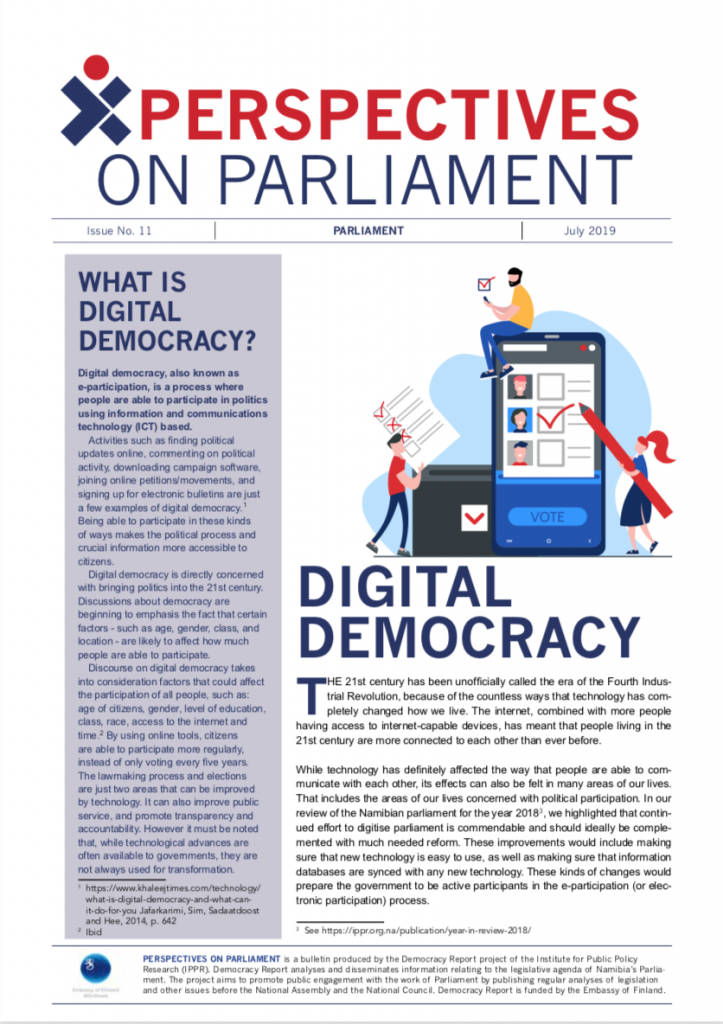Media Statement on Zimbabwean Situation

The ACTION Coalition, of which IPPR is a member, has called for an end to the official silence on human rights abuses in Zimbabwe. In a media statement, the Coalition urges Namibian President Hage Geingob, SADC and the African Union to take action in favour of human rights.
Digital Democracy

While technology has definitely affected the way that people are able to communicate with each other, its effects can also be felt in many areas of our lives. That includes the areas of our lives concerned with political participation. In our review of the Namibian parliament for the year 2018, we highlighted that continued effort to digitise parliament is commendable and should ideally be complemented with much needed reform. These improvements would include making sure that new technology is easy to use, as well as making sure that information databases are synced with any new technology. These kinds of changes would prepare the government to be active participants in the e-participation (or electronic participation) process.
How to Participate in Government

There are three branches of government: the legislative (parliament), the judiciary (courts) and the executive (parliament). The constitution is the supreme law of the country, which contains principles that keep the branches of government from interfering with each other, as each branch is meant to function independently of the other.
The public can participate in some of the actions of these branches, but only up to a certain point. Firstly, of course, Namibian citizens have a constitutional right to vote in National Elections every five years, and therefore choose the members of the National Assembly. In this way, they are able to influence the composition of the legislature and the executive, as Cabinet members are traditionally chosen from the National Assembly.
Namibia: Ruling SWAPO jittery over independent candidates
SWAPO party’s dominion over Namibian politics began at independence in March 1990 when the former liberation movement won the first democratic elections but its stranglehold is slowly being tested.Over the past 29 years, the ruling party has consolidated its dominance, with little challenge from the opposition.
The party commands popular support across all age groups, with its strong base in the north-central regions.
As has become tradition, SWAPO is again confident of cruising to victory in the upcoming general elections set for November.
Procurement remains murky
Access to information on government procurement activities remains largely non-transparent despite repeated claims that the new public procurement mechanisms are meant to enhance accountability and transparency.
Namibia should harness the ocean economy to promote growth
In May this year, Debmarine Namibia announced that it will build a state of art diamond recovery ship costing US$ 468 million. The vessel is slated to be operational by the year 2022. When in operation the vessel is expected to harvest 500,000 carats per year. Debmarine, which is a joint venture between Anglo-American and the Namibian Government, has demonstrated its faith in the Ocean economy by continuing to invest in marine diamonds.
Namibia established its Exclusive Economic Zone in 1990 in accordance with the United Nations Convention on the Law of the Sea.
The Launch of the Fact Check Website
Geingob coming under increasing pressure as elections beckon
President Hage Geingob is coming under increasing pressure from organised movements almost half-way towards the election date but political observers have voiced that he should not be seen to be pleasing everyone in this tough economic climate.
On the 18th of this month, a horde of taxi drivers under the ambit of the Namibia Transport and Taxi Union (NTTU) will march to statehouse demanding that he address their economic woes.
Tenders still shrouded in secrecy
THE lack of transparency in the awarding of government tenders leaves room for speculation on corrupt practices, research associate at the Institute for Public Policy Research, Frederico Links said at the launch of their 5th Public Procurement Tracker publication yesterday.
The publication monitors and tracks developments within the Namibian government and public enterprises’ procurement sphere, which is said to be characterised by a lack of information about those benefiting from state tenders. The government has been the biggest spender in the economy over the years, with a history of costs ballooning, amid alleged acts of corruption. This called for new laws which ensure that transparency is key, thereby rooting out corruption and the overpricing of goods and services to the government.
Namibia: National Budget Not Gender-Sensitive – Analysts
The national budget is not responsive to gender issues, irrespective of sex-disaggregated data available on social issues.
This was the view of Rosina Mubonenwa, deputy director in the ministry of gender equality, yesterday when she presented the ministry’s stance and progress on a gender responsive budget (GRB) at a gathering organised by the Institute of Public Policy Research (IPPR) in Windhoek.
The event was themed ‘Adapting To Fiscal Constraints, With Special Focus On The Budget and Gender.’
Mubonenwa said the budget is too general, and fails to explicitly state how it will address what the sex-disaggregated data on various social indicators shows.

